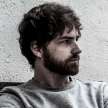4 Lessons I Learned by Changing Careers Twice in 4 Years
From rocket science to AI to neuroscience

I looked down at the paper. Only a few words in it, but they meant so much to me: I had decided my path and I was 100% committed to following it.
1. The place I'd rather be
It was mid-2017, my last year in college. I had been studying aerospace engineering for 5 years already and I didn't like what my foreseeable future looked like. You may think that finishing the degree would provide me a nice job with a nice income. And you would be right.
My problem was that I hated what I was studying.
Physics, math, etc. can be fun, true. But when you think you will spend your life weighting structural elements of plane wings to see when they broke, it doesn't sound that much fun.
I was starting to accept my fate when Tim Urban published a super interesting article on his website Wait But Why: Neuralink and the Brain's Magical Future. I had been a follower of WBW for some years and I was waiting for this post.
What I didn't expect was that it would shape my future the way it did.
I read it in just one afternoon (Tim is not known for short articles…). It was about the brain, the mind, and how technology and brain science would merge in the future. Well, that "future" was already here.
The article sparked my interest. I wanted to know more about how the field of neurotechnology would paint our future.
But I was still finishing my thesis and it had nothing to do with neurotech. I had to find a way to combine both what I was already doing and what I wanted to do.
A week later, another interesting article came up in my research. I had to design and develop the control system of a drone (which is not as fun as it sounds, most of the time I was untangling wires and doing boring calculations).
The article talked about a system that allowed the user to control a drone with the mind. I thought instantly about Tim's article. I couldn't believe I had found within a week, by pure luck, a way to combine what I had to do with what I wanted to do. I was thrilled.
The following day I proposed to my advisor to include in my thesis a (long) section about the mental control system and the combination of neuroscience and aerospace engineering. He accepted promptly and I started researching.
In the end, I got a perfect grade on my thesis and I was extremely happy. But the reason for my happiness was not the grade: I had found what I wanted, a new path to follow and a reason to leave the old one.
I still had some questions flowing in my mind and many doubts:
- Where I wanted to go exactly?
- How could I define the milestones to reach?
- Could it actually be done?
I had no example to follow, as I didn't know anyone that had been in the same situation that I was.
After a week of trying to answer those questions, I ended up with a plan. Well… More like the draft of a plan. Or even the draft of the draft of a plan. Anyway, it worked for me. I had written just six words in a paper:
"Aerospace Engineering -> Artificial Intelligence -> Neuroscience/Neurotechnology"
I had found the bridge. I just needed to cross it.
Takeaway:
Wherever you are, ask yourself this: "Is there a place I'd rather be?"
Dare to take the path that feels yours. You can either follow a path that many others have already walked, or follow your own path from scratch. This may not be for everyone, but if it feels right for you, take the risk to pioneer a new path.
"Do not go where the path may lead, go instead where there is no path and leave a trail."
- Ralph Waldo Emerson
2. When in doubt, remember that you planned it all
I started studying AI the week after defending my thesis. I went into the Internet and searched for the best courses I could find. Our friend Andrew Ng was there waiting for me with his course "Machine Learning".
I still had plenty of time to spare so I enrolled in another course: "Neural Nets for Machine Learning", by Geoffrey Hinton. And then in another one for Python "Python 3 specialization".
At this point, I was doing intensive studying. AI covered my days the same as if I was actually studying for a degree. Apart from the courses, I read blogs, articles, books, and papers to further familiarize myself with the topics. I was loving it.
But I knew I had to close the gap asap and land at an AI company. I didn't want to be caught in the middle ground feeling that I should go back just to realize it's too late.
I had to study but also had to look for a job. I was going against the clock.
I studied hard without a single day off because I knew I had to give it all. Any time I was not trying to make it work could be the reason for my plans to fail. Although I advocate that life is for us to live it, sometimes sacrificing a bit of leisure allows us to live better after.
This was one of those times: In January 2018, just 4 months after I began studying, a small AI startup contacted me. I had an interview. And I nailed it. 2 days later I was officially the new employee of an AI startup.
Takeaway:
There will be forces trying to take you back to the secure path. Don't let them! Instead, put all the effort necessary to make the new path work. And don't fear sacrificing a little for a better future. Trust your plans and believe in your new path.
"Optimism is the faith that leads to achievement. Nothing can be done without hope and confidence."
- Helen Keller
3. Take each step when it feels right
I stayed in the company for almost 3 years. I learned a lot about AI and the startup culture. But along those years I almost forgot what I had planned at the beginning. AI was fun, but it was my bridge. And bridges are for us to cross from one point to the other, not for staying.
You may say 3 years is not too much time to learn and get ready for the next stage, and I agree. The problem is that I was forgetting where I wanted to go. I stagnated.
Two years into this journey I remembered why I was doing all that. I came back to that piece of paper. It felt like a dream: I was suddenly brought back 2 years and it all became clear.
It was time to go to the last step in the plan: the human mind.
I started to look for a master's degree in cognitive sciences and found one in Barcelona that caught my attention. I wanted to live in another city and the names of the courses were very appealing. It felt right. Everything inside me was telling me it was the right choice.
I took my chance and proposed to my bosses to work from Barcelona while studying. They agreed.
Now the difficult part would be collating my job and the master, but I would figure it out.
Takeaway:
It may take some time for you to realize it's time for the next step. Our circumstances influence our lives a lot, independently of what we want or plan to do. When it feels right, it's time to go on.
"Life was always a matter of waiting for the right moment to act."
- Paulo Coelho
4. The most valuable knowledge lies in the intersection of fields
Most of what I've learned in psychology and neuroscience has given me a broader perspective on how we humans behave and why we behave this way.
However, being also an engineer is just as important to understand things as I do today. Maybe I didn't like engineering as a career but it taught me a way to think. And it influences greatly how I approached the study of neuroscience and psychology.
And it will happen for everything else. Engineering and cognitive science will influence any new knowledge I learn. And I will keep adding more and more perspectives to my understanding of the world as if adding pieces to a multidimensional puzzle.
Now, whatever I'm looking into I can go from one perspective to the other without losing sight of the bigger picture.
Takeaway:
When we specialize too much we tend to make sense of the world from the lenses of our field.
And more dangerous even, we tend to behave as if what we know is all there is to know. It's crucial to reduce this bias by knowing more and, in particular, paying close attention to how our understanding of reality changes when the perspectives of different fields merge in a single point.
"Learn how to see. Realize that everything connects to everything else."
- Leonardo da Vinci
Summary
1. Ask yourself if there is a place you'd rather be and act accordingly
2. Believe in your path and put in the effort to make it work
3. Wait until it feels right to take the next step
4. The most valuable knowledge lies in the intersection of fields
About the Creator
Alberto Romero
Half engineer, half neuroscientist with a deep interest in the humanities






Comments
There are no comments for this story
Be the first to respond and start the conversation.